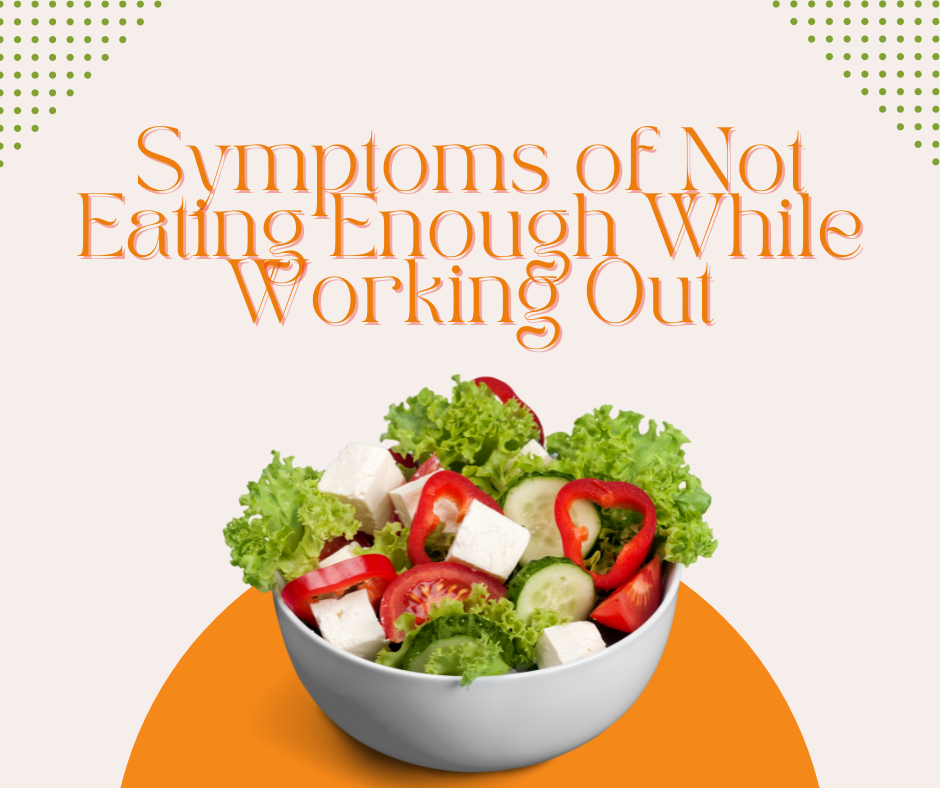Exercising is a great way to shed fat and build muscle. But that’s not all you have to do to have a healthier body. Indeed, having a great body is less exercise and more food you eat in the kitchen. Without good eating habits, your exercise will be good for nothing. You should only view exercise as a supplement to a healthy, balanced diet!
That means eating enough food to fuel your daily activities and your exercise. If you’re not sure you’re eating enough for that, here are the symptoms you need to recognize.
1. Fatigue
Lack of energy from insufficient calorie intake can lead to feelings of fatigue and exhaustion during exercise. While some degree of tiredness from exercise is normal since you’re putting your body through a lot of work, if you find yourself having a hard time finishing exercises even after days of exercising, that’s a sign you’re eating too few calories. You can’t finish a racing track with half a tank of gasoline!
2. Decreased Performance
Insufficient calorie intake can affect an individual’s athletic performance, leading to slower times and decreased endurance. You’ll find yourself not exerting as much effort into your workout, which leads to the workout is less effective. If you’re not squatting as low or lifting as high, that might be because your body simply cannot do it due to a lack of energy.
3. Slow Recovery
If you’re not getting enough calories, your body may not have the energy or nutrients it needs to repair and rebuild muscle tissue, leading to slower recovery time. That’s why it’s so important to eat after your workout. Your muscles need to repair themselves after the grueling workout, and you cannot do that without the tools or materials to rebuild!
4. Dizziness or Lightheadedness
Low blood sugar levels from inadequate calorie intake can cause dizziness and lightheadedness during exercise. This is dangerous for you as being dizzy or lightheaded can make you prone to injury. When you’re surrounded by dumbbells and exercise equipment, the last thing you want to do is hit your head with a dumbbell or fall into some exercise equipment. Ouch!
5. Muscle Weakness
If you’re not eating enough protein and carbohydrates, your body won’t be able to build and rebuild muscles as efficiently. This’ll lead to muscle weakness. Remember that not eating enough isn’t going to burn fat quicker. Your body is more likely to burn muscle first than burn fat, so not eating will only let go of the muscles you worked so hard to build!
6. Hunger Pangs
If you’re not eating enough, your body will signal you to eat by sending hunger pangs, even during exercise. Not answering the call of your stomach is bad for you because it develops an unhealthy relationship with food. It’s okay to eat food—just be careful with how much you eat and make sure you’re eating a well-balanced diet.
Additionally, not satisfying your hunger makes you binge eat when you do eventually cave in. You reach for unhealthy foods like chips and soda instead of fruits, vegetables, whole grains, and protein as your body deserves!
7. Poor Sleep Quality
Insufficient calorie intake can affect sleep quality and leave you feeling tired and unrested, even after a good night’s sleep. It can also cause you to wake up with your tummy screaming because it cannot handle not eating while you sleep!
8. Decreased Motivation
Lack of energy and fatigue can lead to decreased motivation for exercise and physical activity. After all, who wants to exercise when you just end up being cranky and dizzy after every session? But that’s not exercise’s fault—it’s yours and your inability to eat properly.
9. Decreased Immune Function
Inadequate calorie intake can weaken the immune system, making you more susceptible to illness and injury. Our body needs food to support our various organ systems including the immune system, so if you don’t eat enough food, your systems don’t have enough support.
Conclusion
It’s important to remember that calorie needs vary depending on factors such as body weight, activity level, and age. To ensure you’re getting enough calories to support your exercise routine, it’s best to consult a registered dietitian or a sports nutritionist who can help you develop a personalized nutrition plan.
In conclusion, several signs suggest an individual may not be eating enough while exercising. If you’re experiencing any of these symptoms, it may be time to reassess your calorie intake and consider increasing your food intake to support your physical activity.
